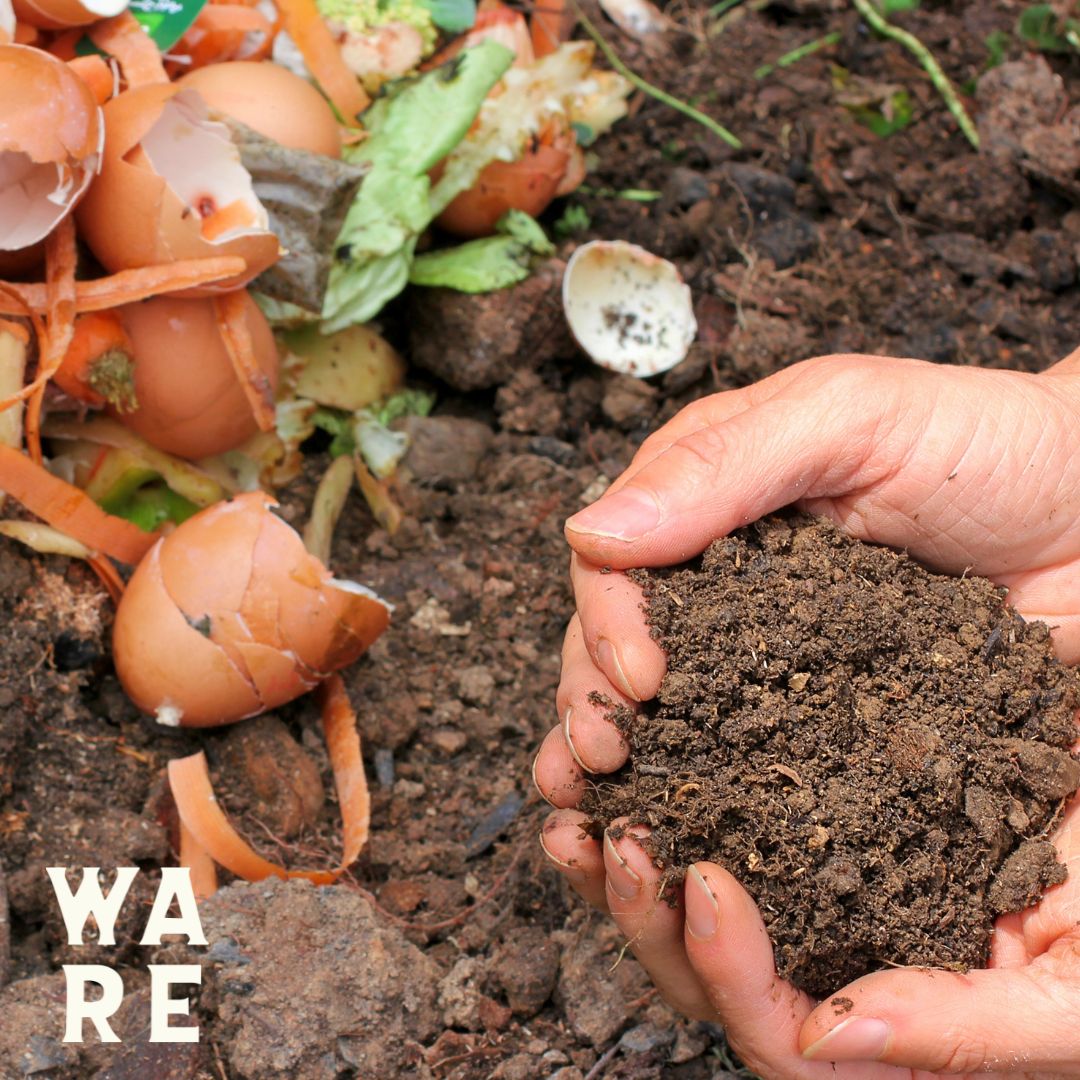
It's Compostable, But How? A General Overview of Composting Methods
"It'S cOmPoStaBLe!"
used the word "sustainability", probably
And, honestly, we'd like to see more of it, because landfills are indeed filling land and food waste is a leading cause of greenhouse gas emmissions. But all of those compostable cups and all of that well-intentioned food waste are just trash if they don't actually make to an environment in which they can be properly broken down. Yes, that means if your favorite coffee shop is giving you compostable cups and you don't have a way to compost them, they are still ending up in the landfill, where they lack exposure to oxygen and therefore do not break down .

The Definition
For the sake of simplicity, let's start with a definition. The NRDC defines composting as, "the natural process of recycling organic matter, such as leaves and food scraps, into a valuable fertilizer that can enrich soil and plants." However, that big-picture definition doesn't address the fact that some methods of composting have the ability to break down different materials than others. Or rather, some composting methods are much more powerful than others, allowing a broader range of substances/products/materials to be included.
The Options
Below, we've written up something of an overview to explain the different ways the you might be able to engage in composting. Think of it like a menu. For the sake of transparency, we haven't necessarily tried all of these composting methods, but we went with options that are either well-reviewed by many or we have some personal or secondhand experience with.
In Your Own Backyard
-
The Green Cone Solar Digester - this lives partially underground and
 harnesses solar thermal energy to support the microbes and worms in quickly
harnesses solar thermal energy to support the microbes and worms in quickly
breaking down even more complicated waste like meat, dairy, oil, and bones as well as many "commercially compostable" packaging solutions. However, it's not built to take yard waste like trimmings and greenery, mostly due to its more compact size. One of its more exciting features is that is can safely break down pet waste with the addition of optional enzymes. -
The Sub Pod (and vermicomposting in general) - The Sub Pod is just a
 simplified way to enlist worms to do your composting for you. You bury the Sup Pod in your yard or garden and worms come and go as they please. In small amounts, it can even accept meat, fish, and dairy. There are other systems like this one; the Sub Pod just has something of a devoted following.
simplified way to enlist worms to do your composting for you. You bury the Sup Pod in your yard or garden and worms come and go as they please. In small amounts, it can even accept meat, fish, and dairy. There are other systems like this one; the Sub Pod just has something of a devoted following. - Tumblers - There are so many of these options around the web, it's hard to narrow it down. However, the method is tried and true, it's only a matter of finding the right system for you. One of our long-time customers even wrote a piece for us on her three-part composting system that involves a tumbler, and you can read it here.
- Heaps & bins - With a bit more effort up front and enough space, you can absolutely host a your compost on the ground in your yard. It can be as simple as a single heap, or you can get more involved with a three-bin system. Generally speaking, these methos are great for reintroducing the nutrients from yard waste and cooking scraps back into the earth, but aren't recommended for the decomposition of meat, bones, dairy, or man-made compostable packaging.
Let Someone Else Do It For You
There are growing options for composting services available to many people and communities, some paid and some not. These large-scale services tend to get to temperatures high enough that they can break down just about any organic material as well as most compostable packaging. Some even accept hair trimmings and paper products. However, you'll always have to confirm the list of compostable items with the the service you employ.
- Municipal Collection - Some cities are ahead of the curve and have already established curbside compost collection. Some places the bin is automatically supplied and in other you have to request one and register your household. Check this out before paying for something your tax dollars might already be funding!
- Community Drop-Offs - Like in Asheville, some cities, schools, farms, neighborhoods, and communities host compost drop-off locations where you can leave your compostable materials for someone else to take care of. These are the times when it's often most important to confirm what materials are accepted and what are not, since you risk seriously messing up someone else's operation with contamination.
- Pay for the Service - More and more businesses are cropping up offering home collection that often includes an annual allotment of nutritious bagged compost for your own use. You are providing the materials, after all. If you live in Asheville, NC, these are the paid services available as of the writing of this blog.
In-Home Composting Machines
 Yes, you read that right. It feels like I'm talking about the future when I tell people about in-home composers, but they're real and the options are growing! These little machines live on your countertop or sit on the ground like a trashcan and pulverize and dehydrate food waste in hours. It's worth noting that I don't currently know of one that technically composts the material, since decomposition can't happen that fast. What you're left with is a material that looks like potting soil, but that hasn't gone through the decomposition process yet, so it may not
Yes, you read that right. It feels like I'm talking about the future when I tell people about in-home composers, but they're real and the options are growing! These little machines live on your countertop or sit on the ground like a trashcan and pulverize and dehydrate food waste in hours. It's worth noting that I don't currently know of one that technically composts the material, since decomposition can't happen that fast. What you're left with is a material that looks like potting soil, but that hasn't gone through the decomposition process yet, so it may not
act like potting soil if added to indoor plants (some folks report molding when they do this). However, it won't attract pests if tossed outside. The sexiest one on the market that had killer
marketing in the early days was/is the Lomi composter. There are tons of others joining the scene and the technology is advancing quickly. The beyondGREEN composter, for example, breaks down pet waste safely indoors.
What Did We Miss?
Want to add to our list or recommend your favorite and failed composting solutions? We'd love to hear from you in the comments.

Comments
Leave a comment